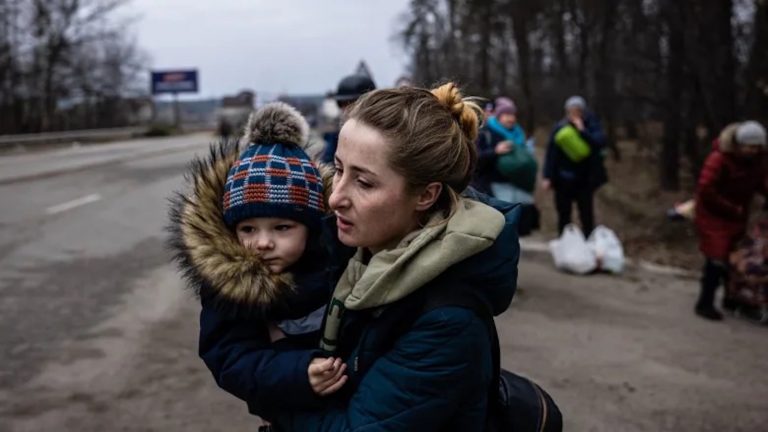What makes a good question? As a project manager, small business owner, and father I’ve fielded thousands and thousands of questions. The way I see it, good questions share three basic characteristics: they require help from someone else to answer, they force people to stop and think, and they bring people together to formulate the answer. So many great questions are asked every day, but none of them seem to exist at the highest levels of government. The absolute failure of the Biden administration to solve quite literally any issue should serve as a stark reminder that thinking is a practice that requires questions, and good questions drive thoughtful solutions wherein the people involved have considered the consequences of the decisions without the echo chamber of identity politics.
Preamble aside, my reason for bringing this article to you is to ask a very specific question that might just save the world if the right person asks it. This question hasn’t been asked publicly as of this writing, and I’m concerned that it might never be asked. That question is how do we punish the Kremlin for the Ukrainian crisis without punishing Russian society? In the years following World War I, Germany’s society began to collapse, leading to a power vacuum that led to some of the most horrific atrocities ever seen in the modern era. Thousands of books centered around “how did this happen?” exist today, but apparently no one is reading them. It happened this way: Germany was assigned the lion’s share of blame for WWI, which led to external control of Germany’s economy to include sanctions, removal of industrial capability, and destruction of their warfighting capabilities and authority to defend itself. Imagine that whatever country in which you’re sitting is essentially owned by another group of people who don’t live there and don’t care about you. These international relationships still exist in many places across the globe, but chances are you’re not in one of them. As the German people became more isolated from the global community, they began to feel alone. In many ways, they were. Their government was not equipped to battle the international community, and they simply printed money, raised interest rates, and instituted rations. German society was imprisoned within its own borders in many cases. All these factors created a storm within their society which led to the creation of a scapegoat: the Jewish population. If you don’t know what happened after that, go to the library and check out any book on WWII.
Do any of the actions that the German government took in the 1920s look familiar regarding Russia? Fast forward to 2022 where we additionally pile on multinational corporations who refuse to sell their goods inside Russia. What does that do to the Russian people? Does it drive them to hate their leaders? Yes. Does that mean they love the West? Probably not. We’re also becoming the enemy. We’re failing to secure the hearts and minds of the Russian people. We’re ignoring Maslow’s Needs Hierarchy, Herzberg’s Motivation-Hygiene Theory, and every other needs and hygiene theory in existence.
We don’t want to punish Russians, we want to punish Russia. These two things are not the same, but Western leaders in both government and business are intent upon making them synonymous.
I am not a policy expert, but I am a people expert. I watched us destroy Afghanistan and Iraq during part of my career as a Navy Officer. The United States figured out the hard way that “hearts and minds” are important, but any salesman can tell you that. People must know that you care long before they care what you know. What a Marine Lance Corporal can tell you about Iraqis that a salesman can’t tell you is that when you have the power and authority to kill someone, gaining their trust is much, much harder, especially after you’ve already destroyed their way of life. We have to flip the script on this cycle of abuse between powerful leaders and the people they govern. We must separate the society from the government when dealing with crises and win over the locals.
What does a policy position look like that takes these things into consideration? That’s certainly not my expertise, but if I were a person with significant authority regarding the Ukraine crisis, I would seek out a team of policy experts that know what policy devices are in place to answer this question. One idea may be to approach the International Monetary Fund (IMF) about setting up a special account into which corporate taxes due to Russia can flow instead of placing them in Russia’s accounts. Even if the Kremlin doesn’t have access to the accounts which they own, the act of digitally putting that money outside their ownership is important. That allows peace negotiation from a different level. The other important thing to note here is that no one can control what the Russian government does to the Russian people. Whether they raise interest rates, conscript their people, or force them into other arrangements is inextricably linked to whatever action the international community takes. How do we alienate the Russian people? By punishing them for the crimes of their leaders through ineffective boycotts and inappropriate attribution of blame. How do we win over the Russian people? Carefully and thoughtfully, by using the three previously-defined criteria for good questions to define policy positions where we’ve considered the consequences of the decisions we make, and how those consequences impact our stated goal: end the Ukraine crisis.














Add comment